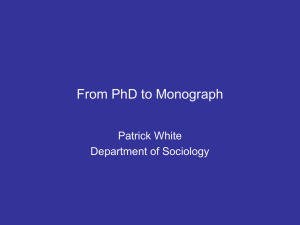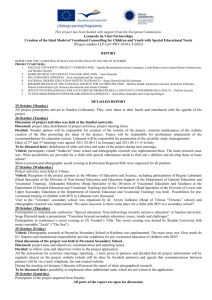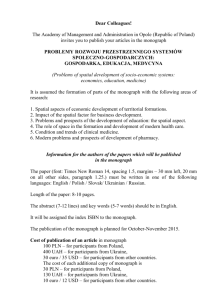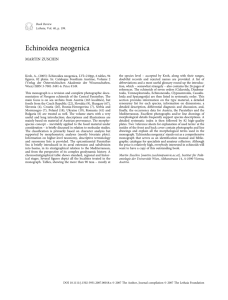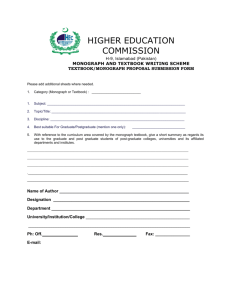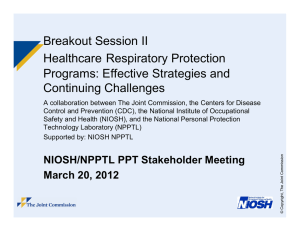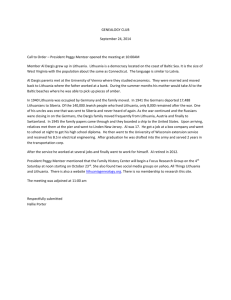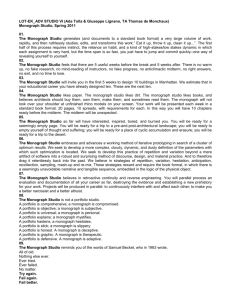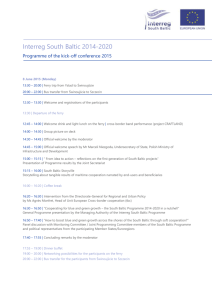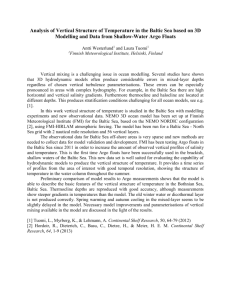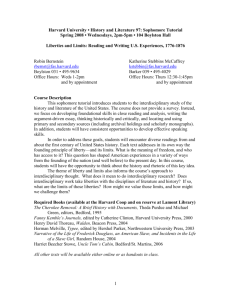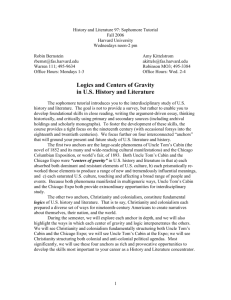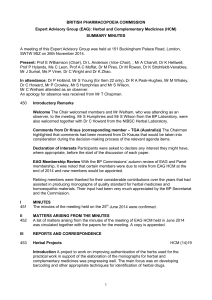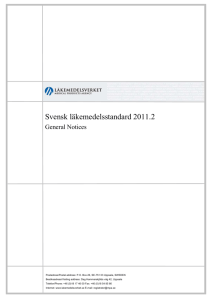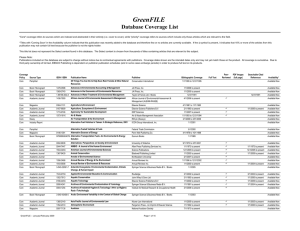Natural Science Education in Contemporary School
advertisement
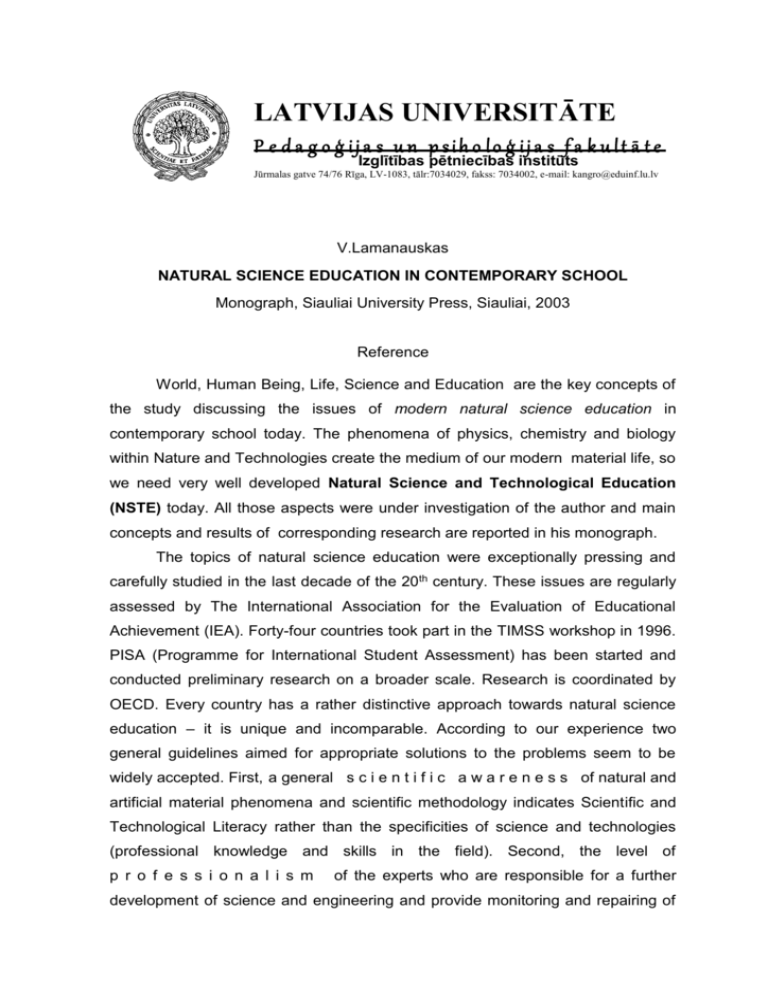
LATVIJAS UNIVERSITĀTE P e d a g o ģ ija s u n p sih o lo ģ ija s f a k u lt ā t e Izglītības pētniecības institūts Jūrmalas gatve 74/76 Rīga, LV-1083, tālr:7034029, fakss: 7034002, e-mail: kangro@eduinf.lu.lv V.Lamanauskas NATURAL SCIENCE EDUCATION IN CONTEMPORARY SCHOOL Monograph, Siauliai University Press, Siauliai, 2003 Reference World, Human Being, Life, Science and Education are the key concepts of the study discussing the issues of modern natural science education in contemporary school today. The phenomena of physics, chemistry and biology within Nature and Technologies create the medium of our modern material life, so we need very well developed Natural Science and Technological Education (NSTE) today. All those aspects were under investigation of the author and main concepts and results of corresponding research are reported in his monograph. The topics of natural science education were exceptionally pressing and carefully studied in the last decade of the 20th century. These issues are regularly assessed by The International Association for the Evaluation of Educational Achievement (IEA). Forty-four countries took part in the TIMSS workshop in 1996. PISA (Programme for International Student Assessment) has been started and conducted preliminary research on a broader scale. Research is coordinated by OECD. Every country has a rather distinctive approach towards natural science education – it is unique and incomparable. According to our experience two general guidelines aimed for appropriate solutions to the problems seem to be widely accepted. First, a general s c i e n t i f i c a w a r e n e s s of natural and artificial material phenomena and scientific methodology indicates Scientific and Technological Literacy rather than the specificities of science and technologies (professional knowledge and skills in the field). Second, the level of p r o f e s s i o n a l i s m of the experts who are responsible for a further development of science and engineering and provide monitoring and repairing of our technical or artificial life medium differs, i.e. science and engineering must be appropriately integrated but general and professional education have to be separated and taught differently. The monograph is becoming very rich informational basis for many students, especially at master and doctor study level. It’s very important that author develops international context of problems and has published his work in English languade, thus broadening area of potencial readers. The author has made efforts to think in the context of the latest educologic ideas and has critically construed them using a comparative method and individual teaching experience. Author of the monograph has done a great and significant job for further development of Science Education in new European countries and first of all in Baltic area. He is also leader of the Editorial Board of the “Journal of Baltic Science Education” (anno 2002). In other words, prof. V.Lamanauskas today definitely has become one the key persons in Baltic Science Education and it is very important to support him for our future activities as well as to thank him for excellent work he has already done. 5.05.2004 Prof., Dr. Andris Kangro Director of the Institute for Educational research, Dean of the Faculty of Pedagogy and Psychology University of Latvia NATURAL SCIENCE EDUCATION IN CONTEMPORARY SCHOOL. V.Lamanauskas, monograph, Siauliai University Press, Siauliai, 2003, 514 p. ( IBSN 9986-38-500-8 ) I have a great honour of introducing this book, though I don’t find the task easy as the study covers a broad spectrum of modern scientific and educational problems. The technocratization of human lifestyles has progressed much more rapidly than the changes of human attitudes. Environment protection and appropriate social problems have become very urgent. A number of people are lagging behind modern life including its latest achievements in science and engineering. A post-modernistic life style of a part of society of developed western countries to some extent demonstrates considerable confusion today, though the achievements of modern science and engineering are introduced in their everyday life. If education is life experience forever, the following fundamental question arises: what Natural Science and Technological education for what life ? There are plenty of facts about the crisis of modern NSTE today and it’s very important to work hard for solving appropriate problems. There is a lack of a full and clear understanding of a real situation as a whole and a serious shortage of an effective educational management. The need of a modern educational management has become a burning question within an overall context of real life nowadays. The monograph Natural Science Education in Contemporary School has been prepared as an attempt to fight against the above mentioned crisis at least from the point of view of NSTE which is important to our life and education today. The rich selection of wide spectrum material about the present situation in Natural Science Education within the context of traditional school practice and the outlook on the future development are disclosed in the work. A number of aspects have been introduced in the study but the basic one is a national one of life and education, natural science education in Lithuania yesterday, today and tomorrow in particularly. What is the history, present state and future prospects of Lithuania’s life and education? What positive and negative experience comes from the Soviet period and Western culture and education? What is the vision of coming life and education within the framework of the European Union? These are burning and the most creative questions of the book. They are also of great interest and value for the readers coming from a wide international community of Science educators. The author, Professor Vincentas Lamanauskas, is widely known as one of the most enthusiastic and promising representatives in the field of Lithuanian new generation. His latest works and activities are laying foundations of the modern development of natural science education not only in Lithuania but also promote the growth of similar activities in other B a l t i c c o u n t r i e s as well as outside the region. Let us sincerely thank the author of our first Baltic study of Natural Science Education for his considerable contribution in the development of modern science education, for the basis of the scientific world outlook, for many interesting aspects to think about and for rich material that should be relevant information when doing a thesis for a master’s or doctoral degree. Let us wish him and his team remarkable success in their educational activities of the future. 10.02.2004 Assoc.Professor, Dr. phys. Andris Broks Department of Physics Faculty of Physics and mathematics University of Latvia
